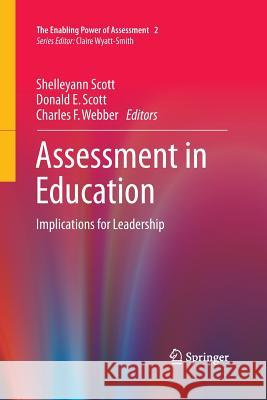Assessment in Education: Implications for Leadership » książka
topmenu
Assessment in Education: Implications for Leadership
ISBN-13: 9783319374246 / Angielski / Miękka / 2016 / 314 str.
Kategorie:
Kategorie BISAC:
Wydawca:
Springer
Seria wydawnicza:
Język:
Angielski
ISBN-13:
9783319374246
Rok wydania:
2016
Wydanie:
Softcover Repri
Ilość stron:
314
Waga:
0.46 kg
Wymiary:
23.39 x 15.6 x 1.75
Oprawa:
Miękka
Wolumenów:
01











